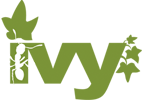
Version JSR 1 of Groovy has been posted. Apparently Groovy has now split into two versions, a so-called "classic" version and the new one being developed in the Java Community Process (JCP). This is the first release based on the latter. Groovy is a JVM hosted scripting language that combines the speed of GW-Basic with the clarity of Perl. "This new version contains many bug fixes, and the new parser implements a fair number of the decisions that have been taken as part of the JSR process for standardizing the Groovy scripting language." Notable changes include:
Rob Lougher has released JamVM 1.3.0, a free (GPL) Java Virtual Machine that "conforms to the JVM specification version 2 (blue book). In comparison to most other VM's (free and commercial) it is extremely small, with a stripped executable on PowerPC of only ~100K, and Intel 80K. However, unlike other small VMs (e.g. KVM) it is designed to support the full specification, and includes support for object finalisation, the Java Native Interface (JNI) and the Reflection API." Like most free VMs it relies on the Gnu Classpath library. 1.3.0 speeds up code execution and has now been ported to mac OS X/Darwin.. JamVM only interprets code. It does not have a Just-In-Time compiler.

Oliver Burn has posted the first beta Checkstyle 4.0, a lint-like tool that checks Java code for adherence to various coding standards. Version 4.0 adds support for Java 1.5.
Version 3.0.7 of EJBCA, an open source, Java 2 Enterprise Edition (J2EE) Certificate Authority, has been released. EJBCA can be used standalone or integrated into other J2EE application. It supports multiple levels of certificate authorities, individual enrollment and batch production of certificates, PKCS12 and PEM export, configurable certificate contents. revocation and certificate revocation lists, and more. Version 3.0.7 is a bug fix release. EJBCA is published under the LGPL.
Teodor Danciu's posted version 0.6.6 of JasperReports, an open source (LGPL) Java library for generating reports from XML templates and customizable data sources (including JDBC). The output can be displayed on the screen, printed, or written to XML or PDF files. Version 0.6.6 adds support for Groovy and other languages.
Gaudenz Alder has released JGraph 5.4.5, a free-as-in-speech (Mozilla Public License/LGPL) graph component for Swing that requires Java 1.4 or later. JGraph is accompanied by Graphpad, an open-source diagram editor for Swing that offers Automatic Layout, Printing, Zoom, and much more. It is available in English, German and French. This release fixes a few bugs and adds some small features and API.

Jayasoft has posted Ivy 0.9, a free Java based dependency manager, that features transitive dependencies, Ant integration, Maven compatibility, and continuous integration. Personally I'm trying to eliminate dependencies from my code lately. I just spent quite a bit of effort to remove some of the dom4j dependencies from the core Jaxen code base so it could run out of the box on Java 1.4 and later without any etxra JAR files. The fewer dependencies a code base has, the easier it is to build, install, and deploy.
Ewan Mellor has released the
CHIP Code Highlighter 2.6.0,
a syntax colorer written in PHP and
designed to be used on Web servers. It supports
C, C++, Java, Lisp, Python, PHP, HTML, and JavaScript code.
Version 2.60 adds the ability to
isable or configure page-entry transitions.
CHIP is released under an MIT/X license.
Websina has released BugZero 3.9.10, a $1299 payware (+$300 for maintenance) Web-based bug tracking system that supports multiple projects, group-based access, automatic bug assignment, file attachment, email notification, and metric reports. Bug Zero is written in Java and can run on top of various backend databases including MySQL. 4.0 enables single sign-on and external authentication schemes.